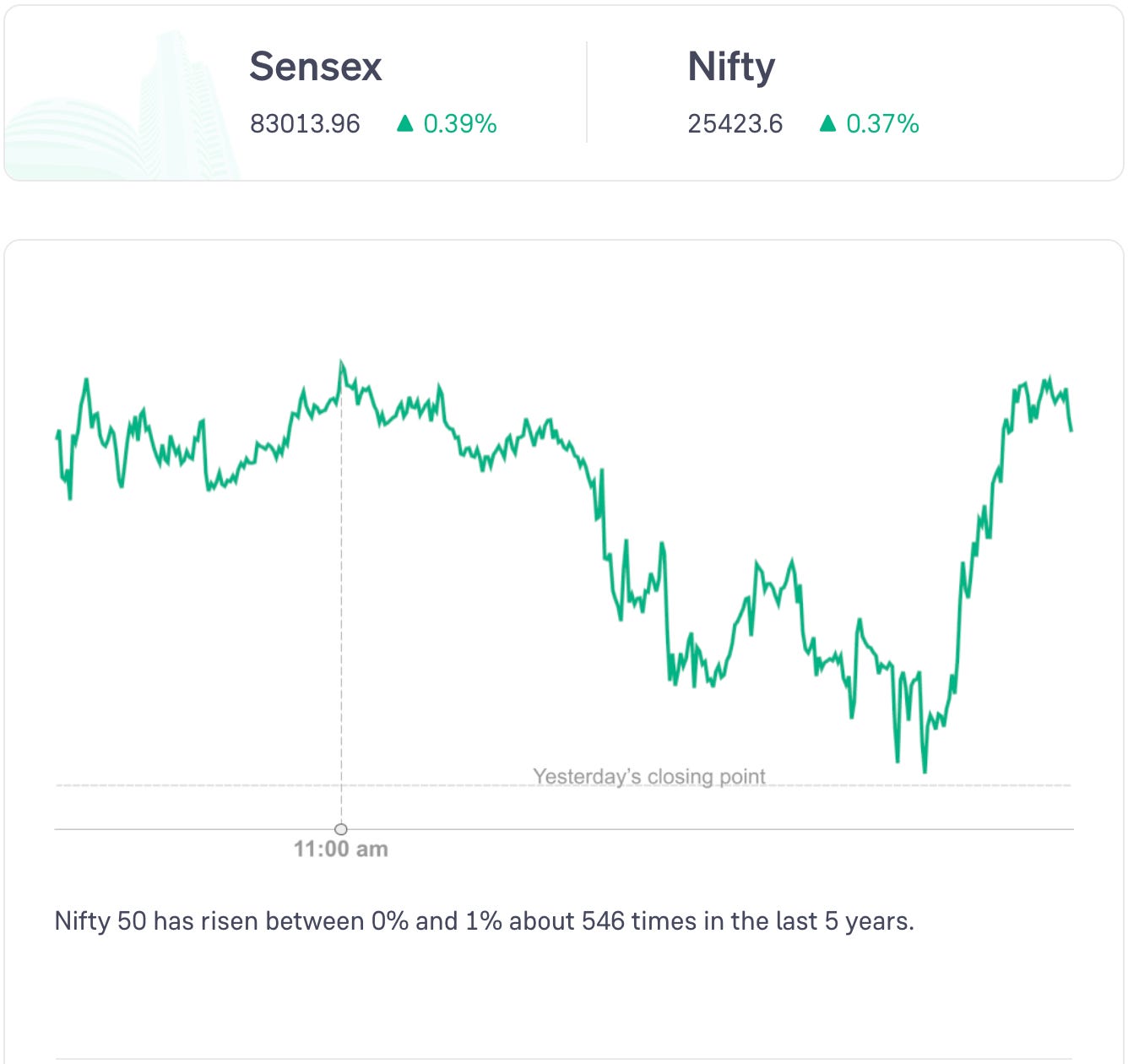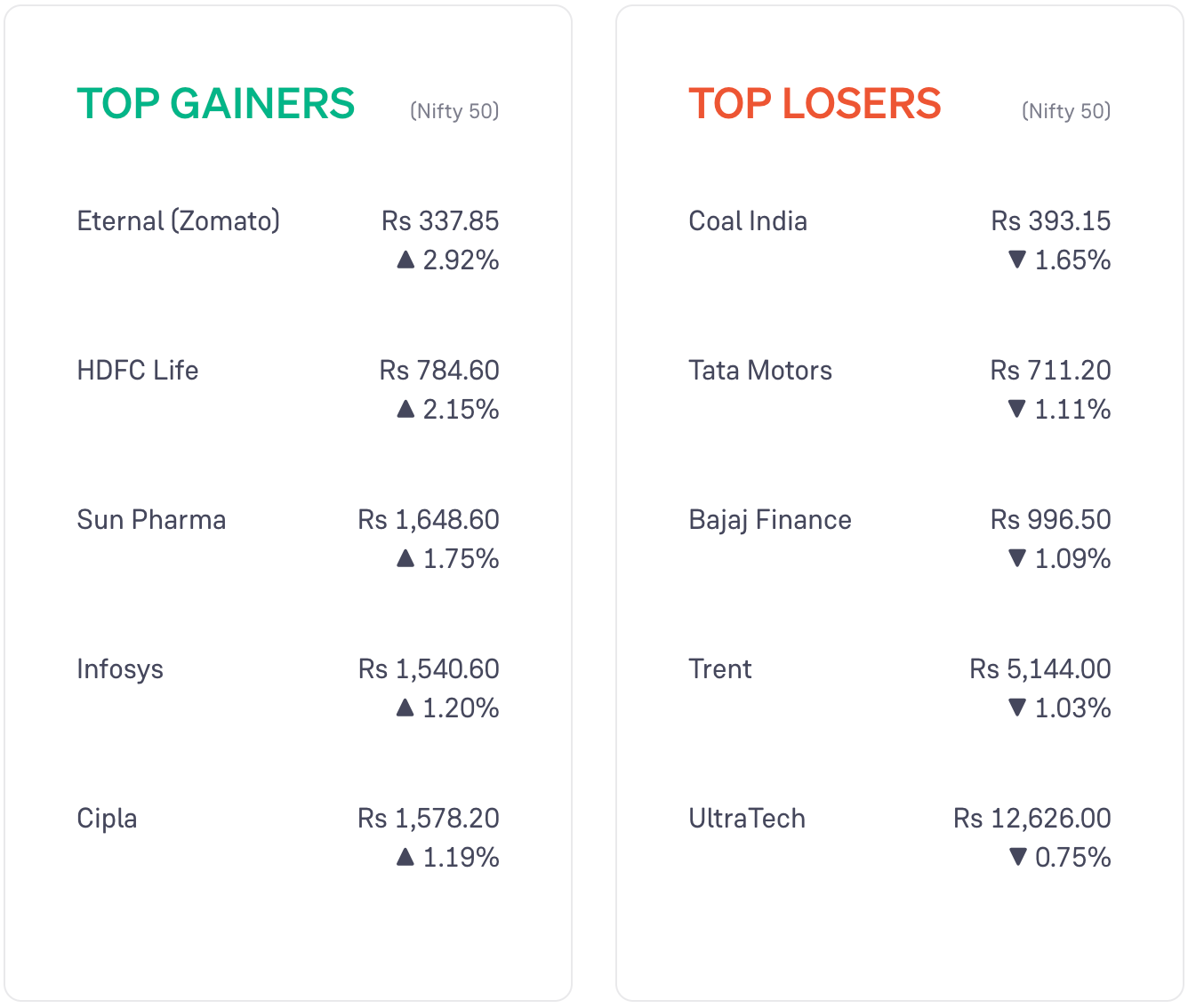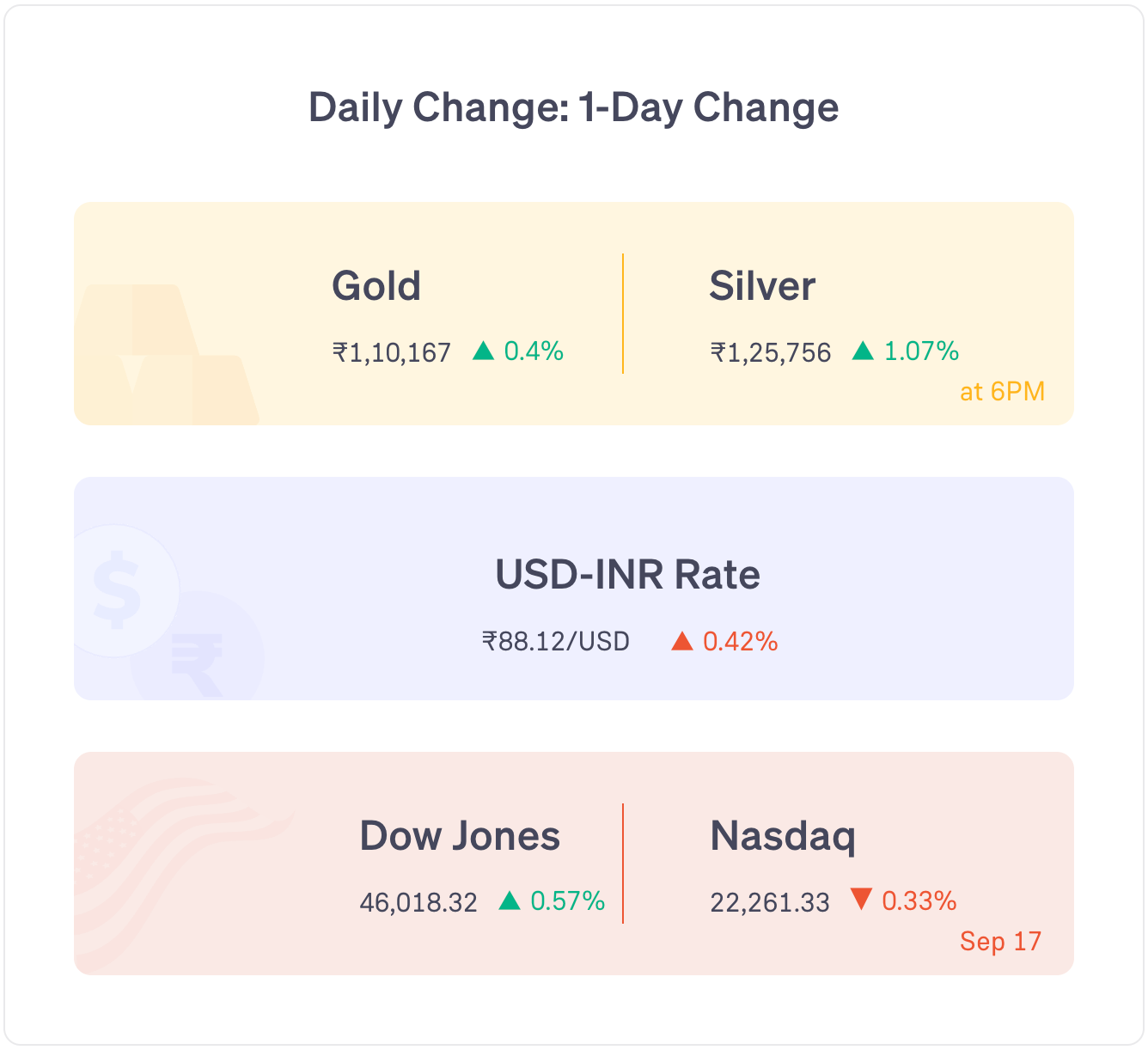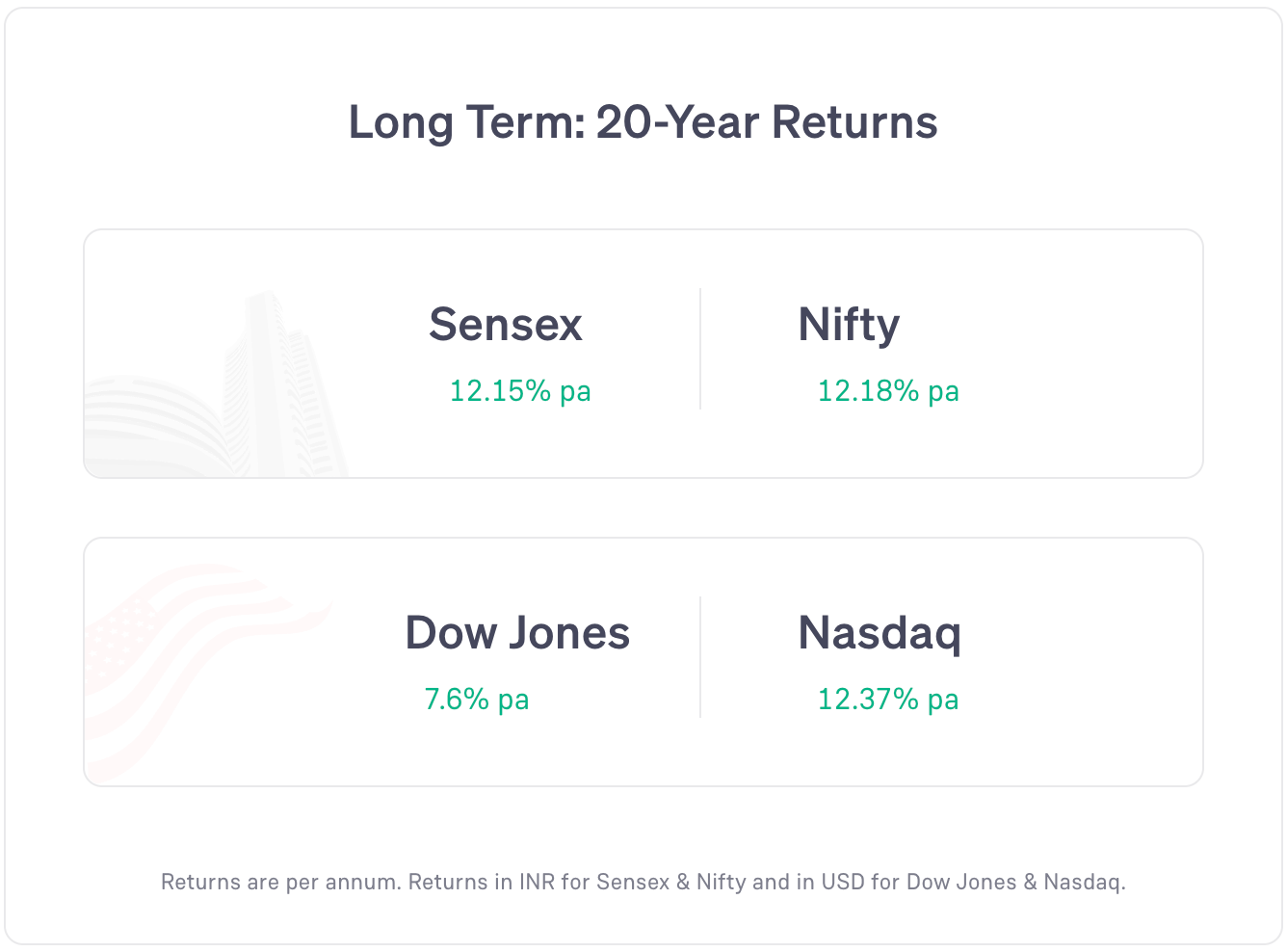US Fed's rate cut, Dixon Tech to enter new business, & more - Daily Digest
Thursday, 18 September 2025
Markets opened above yesterday’s closing point.
Nifty 50 rose sharply in the last hour and closed in the green. The positive opening was mainly due to the US Fed rate cut.
Pharma stocks and healthcare stocks rose the most today. Media stocks and PSU bank stocks fell the most.
Global markets: US markets and Asian markets showed a mixed trend. European markets rose (as of 6 pm IST).
News
The US Fed cut its benchmark interest rate by 0.25% to a range of 4.00%-4.25%. This is the US Fed's first rate cut in 9 months.
The RBI has directed all payment aggregators in India to complete KYC (Know Your Customer) verification for merchants. This has effectively led many platforms to halt rent payments made through credit cards.
The Bank of England kept the benchmark interest rate unchanged at 4%.
iValue Infosolutions IPO has been subscribed 0.28 times. Retail subscription: 0.45 times. IPO closes on 22 Sept.
Stocks Updates
ABB India: received a Rs 72.6 lakh GST penalty order from Nasik authorities for FY 20 to FY 22, which it plans to appeal.
Waaree Energies: will sell a 14.66% stake in Indosolar through an offer-for-sale to meet minimum public shareholding norms.
Dixon Tech: will acquire a 51% stake in Kunshan Q Tech India for Rs 553 crore to expand into camera, IoT, and auto modules business.
Vedanta: was declared preferred bidder for the Punnam Manganese Block (152 hectare) in Andhra Pradesh.
Word of the Day
Systematic Risk
It is a type of risk that impacts the entire market, or a large portion of it, rather than just one company or sector
It can arise from economic or political factors, such as inflation, interest rate changes, recessions, or geopolitical events.
Example: markets falling due to economic slowdowns or investor panic.
Unlike company-specific risks, systematic risk cannot be reduced through diversification — spreading investments across multiple stocks or sectors might not eliminate it.
While you cannot avoid it, being aware of it can help you plan investments accordingly.
6 Day Course
Theme: dividend vs buyback
Day 4: Thursday
From a company’s perspective, dividends usually are more binding.
A company can always skip paying dividends. But many companies avoid skipping dividends since investors tend to expect and rely on the dividend payouts.
When a company stops paying dividends, investors can end up thinking that the company’s future is not good.
That in turn can lead to them selling shares, resulting in crashing stock prices.
For this reason, many companies try to be regular with dividends.
In some troubled companies’ cases, they even take loans to be able to pay dividends on time.
Buybacks on the other hand are not regular. So, a company announces them as and when required.
Buybacks are almost never done as frequently as dividends are given.
Correction: yesterday, we wrote that dividends are taxed at the hands of investors but buybacks effectively are not.
This used to be true, but is no longer true.
After recent changes in tax rules, buybacks received are also taxed as dividends.
So, you will have to pay tax depending on the number of shares you own.
The amount effectively received is taxed at the income tax slab rate.
Featured Question
“Unlike mutual funds, it can be traded in real time on the stock exchanges just like stocks. What does this statement mean?”
As in, the NAV of the mutual fund is decided at the end of the day.
When you invest, your investment is done based on the NAV value.
It is not happening in real time.
ETFs on the other hand work real time, when the markets are open.
You can buy/sell within seconds.
This means that ETFs can also be used for trading.
Mutual funds are meant for a longer term. They cannot be used for fast paced trading.
Even investing money in mutual funds takes about 3-4 working days.
Mutual funds may also have an exit load which in turn does not favour trading.
Did you like this edition?
Leave a feedback here!




